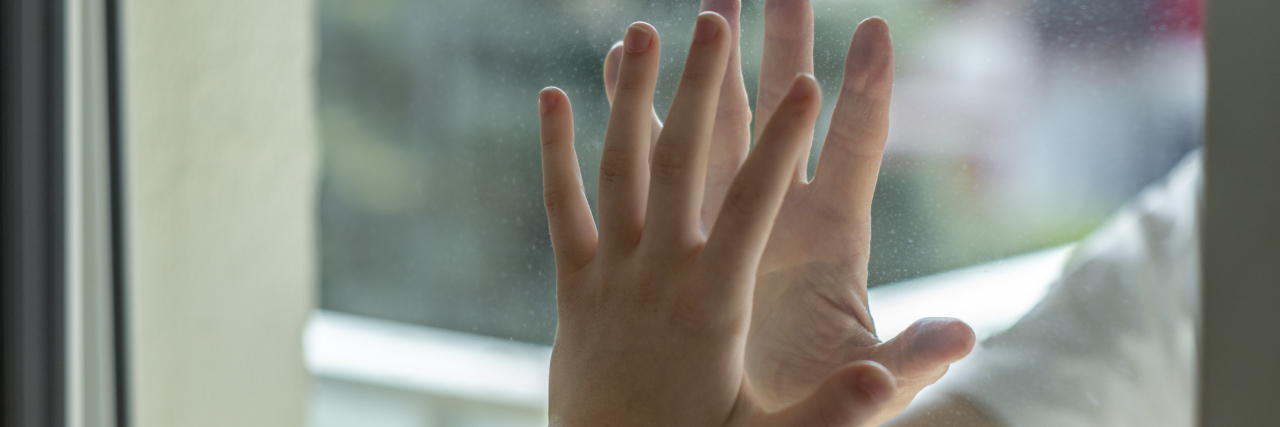Why COVID-19 Is Making Me Feel Closer to You as Someone With Chronic Illness
Editor's Note
Join The Mighty’s Coronavirus group to connect with other Mighties living through the pandemic. Read the latest updates, share helpful tips, or give and receive virtual support.
Sad. Frustrated. Lonely. Useless. Irritated. There are plenty of ways to sum up how the public feels about stay-at-home orders and COVID-19. For many of us with chronic illness, validated is near the top of the list.
Aside from the unpredictability of how you’ll feel each day and the struggle of trying to maintain life through unbearable pain, chronic illness can make you doubt yourself and your emotions. Your “normal” is hard to accept fully. Everybody deals with this differently, but I tend to put on blinders and live in the moment as much as I can. Acceptance, to me, often means going on without acknowledging the rough parts so as to not dwell on them. If I was to talk about it every time I spent the day crying in bed or stayed up all night in pain, I’d never stop talking and would lose even more precious energy.
The thing is, the effects of a condition like mine (idiopathic intracranial hypertension) can sneak up on you. Some are blatant; I wear sunglasses and an ice pack to watch TV. Others fly under the radar and subtly become your lifestyle; I have become more introverted because I dread making plans when I’m unsure I’ll feel well enough to go. Before you know it, you are a changed person.
While I often mourn that I can’t get the dream job I’ve always wanted, or that some people close to me don’t believe I’m sick, other things sit quietly in the back of my mind. Once in a while, suddenly, it dawns on me how much I’ve really lost. And it’s a lot. They’re things an optimist like me doesn’t want to complain about, doesn’t want to accept have actually had a huge effect.
During this quarantine, people are sad about missing their anticipated events and not being able to hug their favorite people. They actually miss work, too, something that makes them feel fulfilled! I don’t think I’ve ever been able to parallel quitting a job and going on disability benefits so well. Being home all the time changes you. Isolation takes a toll on your mind. Having to put your to-do list on hold hurts.
All of these things seemed small to me when I was going through them. Now, as I see other people navigate similar changes, I see how huge their ramifications are, and that makes me feel connected and understood in a way I’ve been longing for.
With both illness and social distancing, uncertainty is front and center, but at least we are all in it together (and let me just say, it is a luxury to be going through this knowing everybody else is in the same boat). For those with chronic illness, that never goes away, and there’s a stinging feeling of displaced hope, too, right alongside it. Imagine a future vaccine that lets us go back to work and visit our loved ones in a relatively carefree way. Suddenly, the vaccine stops working. You thought the nightmare was over, but instead, you find yourself in the same spot, possibly ordered home for even longer. Boy, have I been there. It is frustrating and scary.
Being alone and apart from the things you love takes a mental toll. It is traumatic. No wonder I have bouts of depression. No wonder you are more overwhelmed right now even though you have more free time than ever. You may even feel like you’re losing parts of yourself, and that’s OK to be sad about. It’s when we are most vulnerable that we’re most connected and can more easily understand one another.
For more on the coronavirus, check out the following stories from our community:
- The Problem With Saying ‘Only’ the Elderly and Immunocompromised Will Be Affected by COVID-19
- If I Get COVID-19 It Might Be Ableism – Not the Virus – That Kills Me
- How America’s COVID-19 Response Is Exposing Systemic Ableism
- I’m Afraid I’ll Be Told to ‘Sacrifice’ My Health for COVID-19 Patients
- Search for COVID-19 Treatment Leads to Chronic Illness Medication Shortages
Getty image by GDEFilip.

